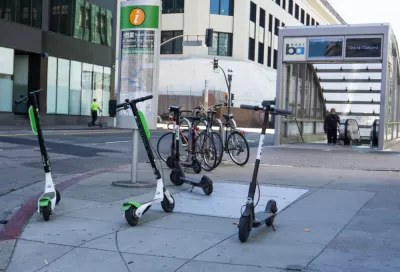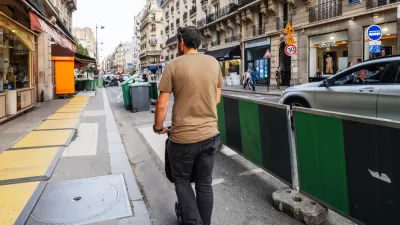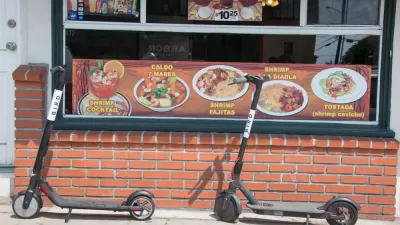Motorists tend to look out for hazards they expect. If tiny vehicles proliferate, including electric scooters, greater safety will follow.

"Two decades ago," and "the very idea of sharing vehicles with strangers would have struck most Americans as odd, even outlandish. Twelve years had to pass after Zipcar was founded in 2000 before even 3% of Americans had tried driving a shared car." Now, as electric scooters become a more and more common sight, drivers may have to get used to navigating the roads with them (not to mention bikes and pedestrians).
With greater numbers comes safety. "Strong empirical evidence suggests that the best thing we can do to ensure the safety of scooter riders is to increase their number. We have no shortage of data about pedestrians and bicyclists, and there's every reason to expect the experience of tiny urban vehicles will follow the pattern."
A psychological "low prevalence effect" underlies that principle. Namely, we tend to devote mental resources to common hazards, and discount rare ones. In places where more people are walking, biking, or scooting, vehicle collisions tend to happen less frequently and are less serious.
In another piece for The Boston Globe, Amy Crawford writes that "if cities and scooters are really going to get along, it will take more than just new regulations — it will take new infrastructure. Sarah Kaufman, associate director of the Rudin Center for Transportation Policy and Management at New York University, argues for expanding cities' networks of bicycle lanes, which she says should be reimagined as pathways for any small, low-speed vehicle, including those we have yet to imagine."
FULL STORY: Tiny Vehicles and the New Safety in Numbers

Maui's Vacation Rental Debate Turns Ugly
Verbal attacks, misinformation campaigns and fistfights plague a high-stakes debate to convert thousands of vacation rentals into long-term housing.

Planetizen Federal Action Tracker
A weekly monitor of how Trump’s orders and actions are impacting planners and planning in America.

San Francisco Suspends Traffic Calming Amidst Record Deaths
Citing “a challenging fiscal landscape,” the city will cease the program on the heels of 42 traffic deaths, including 24 pedestrians.

Adaptive Reuse Will Create Housing in a Suburban Texas Strip Mall
A developer is reimagining a strip mall property as a mixed-use complex with housing and retail.

Study: Anti-Homelessness Laws Don’t Work
Research shows that punitive measures that criminalized unhoused people don’t help reduce homelessness.

In U.S., Urban Gondolas Face Uphill Battle
Cities in Latin America and Europe have embraced aerial transitways — AKA gondolas — as sustainable, convenient urban transport, especially in tricky geographies. American cities have yet to catch up.
Urban Design for Planners 1: Software Tools
This six-course series explores essential urban design concepts using open source software and equips planners with the tools they need to participate fully in the urban design process.
Planning for Universal Design
Learn the tools for implementing Universal Design in planning regulations.
Heyer Gruel & Associates PA
JM Goldson LLC
Custer County Colorado
City of Camden Redevelopment Agency
City of Astoria
Transportation Research & Education Center (TREC) at Portland State University
Jefferson Parish Government
Camden Redevelopment Agency
City of Claremont




























